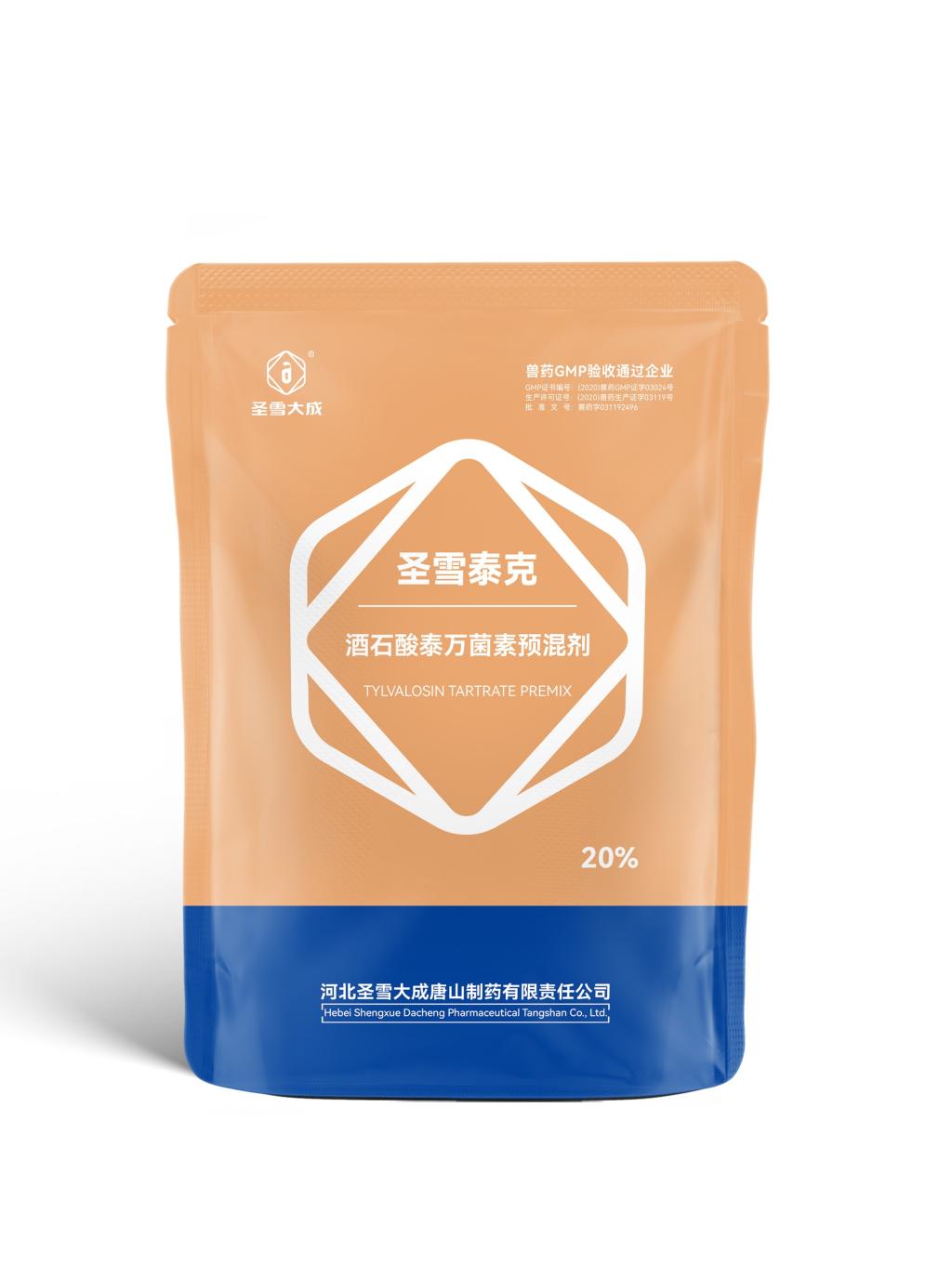Tel:+8618231198596

News
 CONTACT
CONTACT
 CONTACT
CONTACT
- Linkman:Linda Yao
- Tel: +8618231198596
- Email:linda.yao@dcpharma.cn
- Linkman:CHARLES.WANG
- Department:Overseas
- Tel: 0086 0311-85537378 0086 0311-85539701
News
Tylvalosin tartrate premix plays a critical role in reducing veterinary intervention costs.
TIME:2024-08-20
Introduction to Tylvalosin Tartrate
Tylvalosin tartrate is a semisynthetic macrolide antibiotic derived from tylosin, a naturally occurring antibiotic produced by Streptomyces fradiae. It is known for its broad-spectrum activity against Gram-positive and some Gram-negative bacteria, making it a valuable asset in the prevention and treatment of respiratory and enteric diseases in livestock.
Benefits of Using Tylvalosin Tartrate Premix
1. Prophylactic Use:
One of the primary benefits of tylvalosin tartrate premix is its prophylactic use. Administered through feed, it can prevent the onset of diseases, reducing the need for emergency veterinary interventions and costly treatments. This preventive approach leads to healthier animals and lower healthcare expenses.
2. Convenient Administration:
Tylvalosin tartrate premix is easy to incorporate into animal feed, eliminating the need for individual animal dosing. This convenience saves time and labor, reducing the overall cost of managing animal health.
3. Cost-Effective Disease Management:
By preventing disease outbreaks, tylvalosin tartrate premix reduces the likelihood of expensive therapeutic treatments, hospitalization, and loss of productivity. Early intervention through the use of the premix can significantly decrease the total cost of veterinary care.
4. Improved Animal Welfare:
Preventing disease outbreaks through the use of tylvalosin tartrate premix ensures that animals remain healthy and comfortable. Healthy animals are less stressed, which contributes to better overall welfare and more humane livestock production practices.
5. Sustainable Livestock Production:
The use of tylvalosin tartrate premix supports sustainable livestock production by reducing the need for repeated antibiotic treatments, which can lead to antibiotic resistance. It promotes responsible antibiotic use and helps maintain the efficacy of antibiotics for future generations.
Case Study: Swine Production
Swine production is one sector where tylvalosin tartrate premix has shown significant benefits. In swine farms, respiratory diseases such as porcine circovirus disease (PCVD) and swine respiratory disease complex (SRDC) can cause substantial economic losses. By incorporating tylvalosin tartrate into the feed, veterinarians and producers can prevent these diseases, leading to:
Reduced Mortality Rates: Healthy pigs have lower mortality rates, which directly impacts the bottom line of the farm.
Improved Growth Rates: Disease-free pigs grow faster and reach market weight sooner, resulting in increased profitability.
Lower Treatment Costs: Preventing disease outbreaks through the use of tylvalosin tartrate reduces the need for costly therapeutic treatments.
Conclusion
Tylvalosin tartrate premix plays a critical role in reducing veterinary intervention costs by providing a convenient and effective method for preventing and managing bacterial diseases in livestock. Its use not only improves animal health and welfare but also supports sustainable livestock production practices. By integrating tylvalosin tartrate premix into livestock management strategies, veterinarians and producers can ensure healthier herds and flocks, leading to more efficient and economically viable farming operations.
- Tel:+8618231198596
- Whatsapp:18231198596
- Chat With Skype







